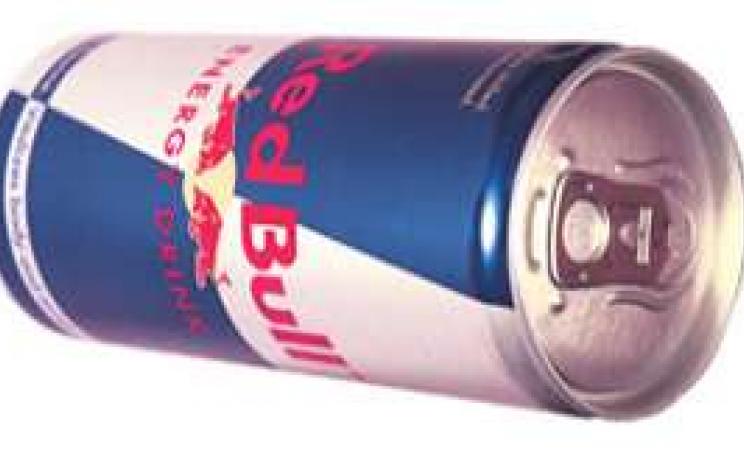INGREDIENTS:
Water, carbohydrate blend (glucose syrup, maltodextrin), citric acid, acidity regulator (sodium citrate), preservative (potassium sorbate), stabilisers (acacia gum, glycerol esters of wood rosins), sweeteners (aspartame, acesulfame K), caffeine (0/016%), antioxidant (ascorbic acid), flavourings, vitamins (niacin, pantothenic acid, B6, B12).
A stalwart of the UK soft drinks market, Lucozade has been around since 1938 and has dominated the UK market for much of that time. Having successfully distanced itself from a traditional image of hospital bedsides (it was once known as ‘hospital champagne’), Lucozade has, in recent years, expanded its range to include a wide variety of ‘functional’ drinks that claim to be sporting aids and brain-boosters. Advertising campaigns featuring prominent sportspeople have helped boost the brand’s popularity considerably.
Throughout the world, the market for functional drinks is growing. In 2006, western European sales grew by six per cent to approximately 4.5 billion litres – a 40 percent increase in sales compared to 2001. In monetary terms, that translates to an increase from ¤8.5 billion in 2001 to ¤13.6 billion in 2006.
In the UK, the Lucozade brand – owned by pharmaceutical giant GlaxoSmithKline – is a market leader, with current annual sales of some £253 million. Nearest competitor Red Bull pulls in around half that.
Although Lucozade is notionally a sports drink – formulated to help improve athletic performance, at least in the short term, it is not solely consumed by sportspeople. Indeed, it seems likely that sportspeople make up only a tiny proportion of the brand’s consumers. These days, energy and sports drinks appeal to a fairly broad audience, ranging from tired drivers and office workers putting in long hours to gym bunnies, clubbers and students, none of whom need or are looking to improve their sports performance.
According to market reports, sports and energy drinks are only regularly consumed by approximately 20 per cent of households; thus in sales terms it is a market ripe for growth. Should that market grow, however, what is it that we would all be consuming?
Lucozade Sport has its own scientific website, the Lucozade Sport Science Academy, devoted to disseminating research about the benefits of the product.
According to the site: ‘The results of these studies… clearly demonstrate that the consumption of isotonic drinks has been associated with significantly improved performance in treadmill marathon and fixed-pace high-intensity treadmill running, and in intermittent high-intensity running which has been designed to mimic team sport activities like football. The studies also demonstrate that the consumption of isotonic drinks in the recovery period after exercise has been shown to lead to improved performance in subsequent exercise.’
The academy’s website features summaries of 10 studies to support its claims. Assuming the study populations to be unique in each case (and this is not a given since several of the studies are by the same research teams and may have involved different tests on the same athletes), the total number of people studied is 98. All of these are highly trained and/or very fit athletes whose lifestyles and needs are greatly different from the average office worker or student. In this narrow population an isotonic drink does give some edge in performance.
Such results are not terribly surprising. Lucozade Sport Caffeine Boost contains a mixture of glucose and caffeine – over the short term it acts as a kind of biological rocket fuel, providing energy in an easily assimilable form and a jump-start to your adrenal glands. The longer-term implications of using a sugary drink for quick energy, however, are worrying.
The brain and muscles prefer glucose for energy because it can be used immediately. But to get the best from your body (or brain) that glucose needs to be supplied in a slow, steady process (from the breakdown of complex carbohydrates, for instance). Large infusions of simple sugars can have a dramatic effect on insulin levels and lead to depression and anxiety. They also wreak havoc on the immune system. Studies show that the body’s immune response is dulled almost immediately after ingesting simple sugars.
For most of us, the likelihood that Lucozade Sport makes the sprint to the bus stop or the newsagents that much more effective is simply ridiculous. Instead, it adds to our daily diets more calories, caffeine, sugar and artificial sweeteners – and of course there are adverse health consequences to this.
Consider first the nonsense of an ‘energy drink’ that contains artificial sweeteners – which of course provide no energy. These ingredients serve no useful function for the body and are not included to reduce the caloric value of the drink. In this instance, toxic sweeteners like aspartame and acesulfame K are most likely used as flavourings – something that is becoming more and more common in the soft drinks market.
Caffeine is also not an energy provider. It is a central nervous system stimulant drug that produces mild positive mood changes. At doses of around 100mg daily (around three servings of cola soft drink) caffeine has been shown to produce physical dependence characterised by lethargy and headache on cessation of intake. Caffeine also leeches nutrients from the body. Consumption has been shown to reduce the body’s ability to absorb iron, so the idea of giving it to young children (who have an increased need for iron in order to maintain growth and immunity) seems worrying. And although Lucozade Sport Caffeine Boost contains ‘energy-releasing’ B vitamins, research has shown that caffeine leeches B vitamins from the body – potentially rendering pointless the minute amounts of niacin, pantothenic acid, B6 and B12 in the mix. Not all products in the Lucozade Sport range contain caffeine, but this one does: 80mg per bottle, similar to the amount found in a can of Red Bull or a large mug of instant coffee.
Caffeine ingestion can make the body’s response to glucose ingestion more acute. There is data to show that caffeine consumption can increase the severity of hypoglycemic symptoms. Drinkers of caffeinated beverages also have an increased risk of colon cancer.
Energy drinks can make a valid contribution to the performance of sportspeople who train at the very highest level. For those who go to the gym twice a week, however, the benefit is negligible. For children the effect of such drinks can be devastating, giving them a quick boost followed by a deep low.
Glucose syrup
Purpose: Sweetener, texturiser, emulsifier
Adverse effects: Glucose syrup is generally known as corn syrup outside the US and Canada. The health effects of consuming glucose are not dissimilar to those of other simple sugars. Glucose syrup is implicated in dental caries and, in large quantities, contributes to obesity. It has no nutritional value and can cause acute rises in blood glucose levels, thus stimulating an acute rise in blood insulin concentrations. This may be linked to a raised risk of diabetes. High sugar diets leech essential minerals such as copper, chromium and zinc from the body, leading to deficiency diseases and immune system impairment.
Maltodextrin
Purpose: Sweetener
Adverse effects: Can be made from starchy foods including corn, potato, rice, arrowroot, tapioca and/or wheat. Dextrins occur naturally in the human gastrointestinal tract as a stage in the digestion of starch. But the dextrins in food are made in the lab. Major concern is that the starting material may be GM corn.
Aspartame
Purpose: Sweetener
Adverse effects: Breaks down easily in heat and during storage to its neurotoxic components: phenylalanine, aspartic acid and methyl alcohol. According to the US Food and Drug Administration, aspartame is associated with headache, dizziness, loss of balance, mood swings, nausea, memory loss, muscle weakness, blurred vision, fatigue, weakness, skin rashes and joint and musculoskeletal pain (for a full report on aspartame toxicity see the Ecologist September 2005). Recent evidence shows that aspartame ingested at levels currently found in daily soft drink consumption raises the risk of otherwise rare brain tumours known as lymphomas.
Acesulfame K
Purpose: Sweetener
Adverse effects: Causes cancer in animals. Acetoacetamide, a breakdown product, has been shown to affect the thyroid in rats, rabbits and dogs. Although commonly blended with aspartame to cover its bitter aftertaste, there are no studies to show that the combination is safe or whether it produces other toxic by-products.
Acacia Gum
Purpose: Stabiliser
Adverse effects: Also known as Gum Arabic and E414. Acacia gum is generally considered a safe food additive. It has been used in printing as an off-set agent, however, and workers exposed to its fumes have suffered allergic reactions, sometimes called ‘printer’s asthma’.
Glycerol esters of wood rosins
Purpose: Stabiliser
Adverse effects: Obtained by solvent extraction of pure stump wood (wood resin). In short- and long-term studies on rats, low-level consumption showed no effects; higher levels showed changes in liver size, however, and in some cases the dose was fatal. Also used as a plasticising agent in chewing gum and in citrus oils added to beverages to increase the density of the oil. High intakes may upset the calcium/phosphate equilibrium and cause headaches, nausea, vomiting, dehydration, diarrhoea, thirst, dizziness and mental confusion.
Flavourings
Purpose: Synthetic flavours
Adverse effects: Flavourings can be a mix of several synthetic chemicals. Essentially the same chemicals as perfumes, they can thus be considered neurotoxins, allergens and potential carcinogens.
Caffeine
Purpose: Flavouring
Adverse effects: A stimulant, psychoactive compound that can provoke mood changes, lethargy and headaches. Caffeine is addictive and ingestion of high levels can cause miscarriage as well as contribute to peptic ulcers and heart ailments. At the levels added to soft drinks caffeine adds virtually no flavour but does, if consumed regularly, trigger caffeine addiction. Children consuming caffeine have more, illnesses, headaches, sleep problems and iron depletion.
Sources
Space restrictions prohibit full referencing, however Behind the Label draws on data from published studies and reports in medical, scientific and trade journals, government-sponsored databases (e.g. the US National Library of Medicine) and relevant Material Safety Data Sheets (MSDS).
This article first appeared in the Ecologist March 2008







